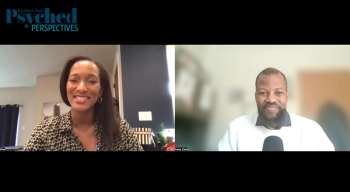
Mind the Media: Teaching Psychiatry Fellows to Engage in Media Meaningfully
In the age of misinformation, how can young psychiatrists navigate patient care and social media use?
COMMENTARY
“I think I have ADHD, doc. I saw this video on TikTok…” This is one of those dreaded lines that we often hear from patients and roll our eyes a bit. At a time when an ever-increasing number of patients are getting their mental health information from social media, how do we navigate this conversation in a way that would be most helpful to our patients?
For the past 5 years, that has been our test in Columbia’s Public Psychiatry fellowship. In our mental health and media course, titled PPF Express, we walked the fellows through the complex landscape that is traditional media, social media, as well as writing for lay public. This may not be a space that psychiatry is accustomed to occupying. Our psychoanalytic roots call for us to be neutral behind that couch, but we now live in a time where the sheer volume of dangerous misinformation available to our patients beckons us to step out from behind that neutral zone and into the public educational sphere.
The course is comprised of workshops and guest lectures that invite the psychiatrists in training to find their own voices as advocates, educators, and thought leaders. We discuss the hurdles that often prevent the most qualified psychiatrists from engaging with the lay public, while perhaps the least qualified (at least from a training perspective) continue to push inaccurate, misleading, or downright harmful psychiatric advice. We are often unsure how to do this, fear the backlash of criticism, or dread misspeaking. We hold ourselves to a an appropriately high standard that ensures we only speak when we give value.
As we navigate these concerns with our fellows, we are often pleasantly surprised to see them work their way into op-eds, podcasts, and television appearances. The feedback is often that this was simply not something they were exposed to in training, so the process itself is novel. Once the initial hurdle of imposter syndrome is crossed, creative juices begin to flow. Each of us come with a unique set of experiences and perspective that can be potentially life-saving for a patient to hear. Our patients yearn to relate to a person who is both an expert in the field, and somehow “gets it.”
We do not want to rob our patients of that gift of seeing themselves in us. Even if we do not do so perfectly, we offer up truth in the midst of an algorithm plagued by #partnerships and #paidads.
Who is the patient that will benefit from hearing your voice today?
Dr Mirhom is the immediate past president of the New York County Psychiatric Society, an assistant professor of Psychiatry at Columbia University, codirector of the PPF Express Program, and the Chief Wellbeing Officer at Athletes for Hope.
Newsletter
Receive trusted psychiatric news, expert analysis, and clinical insights — subscribe today to support your practice and your patients.







